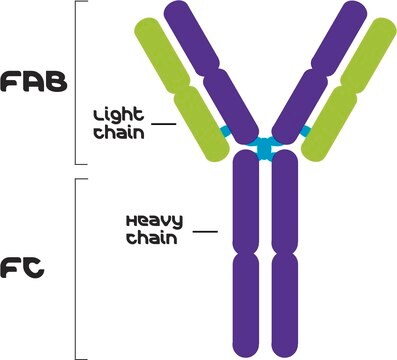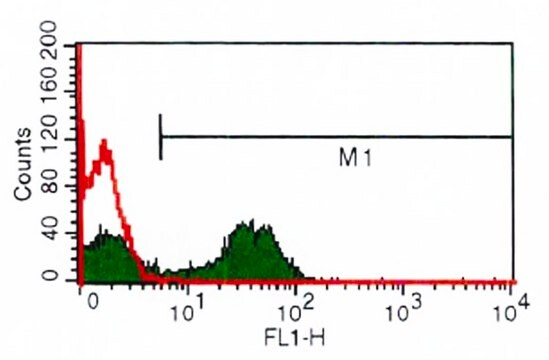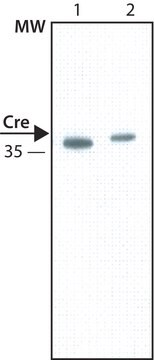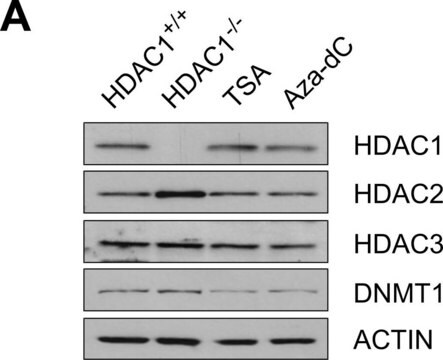SAB4700751
Monoclonal Anti-CD28 antibody produced in mouse
clone CD28.2, purified immunoglobulin, buffered aqueous solution
Synonim(y):
Anti-MFASCD28-P
About This Item
Polecane produkty
pochodzenie biologiczne
mouse
białko sprzężone
unconjugated
forma przeciwciała
purified immunoglobulin
rodzaj przeciwciała
primary antibodies
klon
CD28.2, monoclonal
Postać
buffered aqueous solution
reaktywność gatunkowa
human, nonhuman primates
stężenie
1 mg/mL
metody
FUNC: suitable
flow cytometry: suitable
immunoblotting: suitable
immunocytochemistry: suitable
immunohistochemistry: suitable
immunoprecipitation (IP): suitable
izotyp
IgG1
numer dostępu NCBI
numer dostępu UniProt
Warunki transportu
wet ice
temp. przechowywania
2-8°C
docelowa modyfikacja potranslacyjna
unmodified
informacje o genach
human ... CD28(940)
Opis ogólny
Immunogen
Działania biochem./fizjol.
Cechy i korzyści
Postać fizyczna
Oświadczenie o zrzeczeniu się odpowiedzialności
Nie możesz znaleźć właściwego produktu?
Wypróbuj nasz Narzędzie selektora produktów.
polecane
Kod klasy składowania
10 - Combustible liquids
Temperatura zapłonu (°F)
Not applicable
Temperatura zapłonu (°C)
Not applicable
Certyfikaty analizy (CoA)
Poszukaj Certyfikaty analizy (CoA), wpisując numer partii/serii produktów. Numery serii i partii można znaleźć na etykiecie produktu po słowach „seria” lub „partia”.
Masz już ten produkt?
Dokumenty związane z niedawno zakupionymi produktami zostały zamieszczone w Bibliotece dokumentów.
Nasz zespół naukowców ma doświadczenie we wszystkich obszarach badań, w tym w naukach przyrodniczych, materiałoznawstwie, syntezie chemicznej, chromatografii, analityce i wielu innych dziedzinach.
Skontaktuj się z zespołem ds. pomocy technicznej








